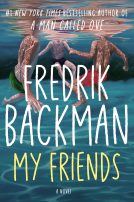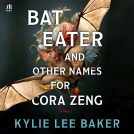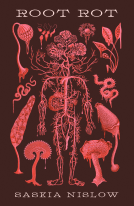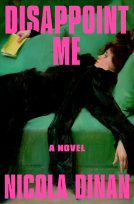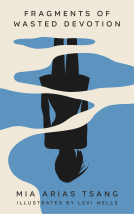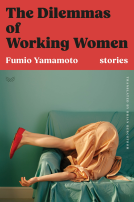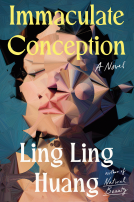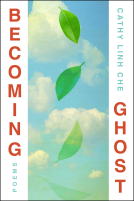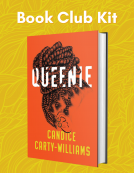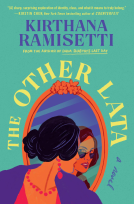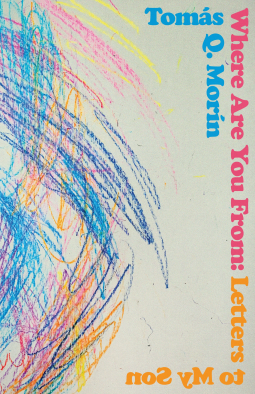
Where Are You From
Letters to My Son
by Tomás Q. Morín
This title was previously available on NetGalley and is now archived.
Send NetGalley books directly to your Kindle or Kindle app
1
To read on a Kindle or Kindle app, please add kindle@netgalley.com as an approved email address to receive files in your Amazon account. Click here for step-by-step instructions.
2
Also find your Kindle email address within your Amazon account, and enter it here.
Pub Date Mar 01 2024 | Archive Date Feb 29 2024
Talking about this book? Use #WhereAreYouFrom #NetGalley. More hashtag tips!
Description
Starting in New Jersey during a long-distance teaching position before his son’s birth and spanning to the present day, Morín shares his experiences with racism to sketch for his son ways to respond to bigotry that won’t sacrifice his dignity or his spirit. He also challenges his young son, and the reader by extension, to reassess their perception of the world and the language we use to understand and label our surroundings. Hovering over Morín’s bold vision for shaking off the chains of injustice is a quartet of literary angels: Baldwin and Dostoevsky, Ellison and Camus. Where Are You From is a poignant and gripping testament that speaks to all the sons and daughters of America.
Advance Praise
“A vast, poetic, and heartfelt collection, grappling through politics, culture, and art with what it may mean to be Mexican American under late-stage capitalism. Tomás Q. Morín’s work will never fail to astound you. At once playful, informative, and devastating.”—Fernando A. Flores, author of Valleyesque and Tears of the Trufflepig
Available Editions
| EDITION | Other Format |
| ISBN | 9781496237767 |
| PRICE | $19.95 (USD) |
| PAGES | 128 |
Available on NetGalley
Featured Reviews
In this collection of letters to his son Jack, Tomás Q. Morín tries his best to instill some knowledge into his son about his experiences in society as a Mexican-American while imparting some guidance so that Jack can navigate this life making dignified decisions. The central motif of this collection is racism and how it has impacted the way Morín goes about living in a society where his worth is questioned by the color of his skin. He makes constant references to the struggles and mistreatment of BIPOC people in America throughout history. I think these letters are a great example of the realities that minority and BIPOC populations face when dealing with racism. Mainly because in this society, you're forced to prepare yourself and your children for what they may come to face at the hands of people who fear them, hate them, or have a superiority complex that's harmful to others. While racism is certainly a motivating factor for these letters, Morín also discusses love and taking care of your health. I liked that these letters had an authentic feel, which I think stems from Morín being very contemplative, poetic, and lost in thought throughout the text. He's pretty imaginative, references the poetic and biblical works of others, and uses them and metaphors to compare to his life. I was unsure what to expect coming into this book, but Morín's work moved me, and I appreciate his views on racism and his commitment to enlightening his son. My only concern was the formatting. There wasn't necessarily a cohesive separation of the chapters. They were numbered, and some had bolded beginning sentences, but as you would expect new chapters to start on a new page, these did not. The formatting felt like a continuation of run-on letters, which could've been intentional. Regardless of that one detail, Where Are You From: Letters To My Son provided a fresh perspective on the effects of racism on the mental and physical health of minority/BIPOC individuals and Tomás Q. Morín's obligation to protect his family and share his thoughts that he thinks will be helpful for his son in the long run.
 Brice M, Reviewer
Brice M, Reviewer
Thanks to NetGalley and University of Nebraska Press for the ARC!
I really liked this!
Framed as letters to the poet’s unborn son, Tómas Q. Mórin’s “Where Are You From” is a sort of formalized version of the mythology that every family implicitly creates—how do we fit in a family and how does a family fit in the world?
I think readers’ mileage will vary depending on their tolerance for rambling epistolary, and as much as I appreciated it, I still found some of the digressions a little frustrating. Even so, within the book’s premise, I question whether there is such a thing as a digression. When we speak with family, it is sometimes the smallest, most irrelevant anecdotes that make us feel closest, so everything Mórin shares retains value, even if it isn’t always clear.
The excessive style works really well to capture race-related angst. It resists simplifications, which conveys how insidious and wide-ranging racism truly is. Similarly, the approach allows Mórin to pull in so many different voices from a range of authors. I’m not sure if it’s something exclusive to the galley or a stylistic decision, but most of these citations have unclear edges and bleed into Mórin’s voice, which also adds an authenticity to the book—like the actual quotes matter less than their recollection. It coalesces wonderfully with the premise that these are letters to be inherited.
I find it fitting that a work so concerned with borders takes so many opportunities to dissolve them. The boundaries between a poem and its analysis are left ambiguous, and the constant slippage in and out of different genres forces the reader to ask—what does it mean to occupy a text?
Not a point of criticism as much as curiosity—I wonder if there is a tighter edit in here that still captures the same tone. The book is so dense that I think it will reward people who return for a second read, but that density also creates a shapelessness that might prevent people from doing so.
 Reviewer 851492
Reviewer 851492
For the most part, I enjoyed this. The author delves into how racism affects Latine communities with so much compassion. This book provides invaluable insights into how racism can negatively impact the mental and physical well-being of minorities.
I’m such a sucker for memoirs written in essay or letter collections especially when it is written for a family member. In this collection of letters to the author’s son with reflection on his own life to give advice for things his son will face being biracial in America.
It definitely felt like a father talking to their kid in the way that things were a little disjointed but as you got familiar with the authors voice you could see all the threads making a bigger picture. It would definitely be one to reread I think you’d get more out of it on multiple reads- very poetic and sometimes lost me a little bit though so I don’t know that I would have the patience to reread. But overall it was enjoyable in an emotional way.
Thanks to NetGalley and University of Nebraska Press for an eARC.
 SG H, Reviewer
SG H, Reviewer
Morín's latest nonfiction book once again shows his imaginative mastery of language. These letters to his son get at (sometimes painful) truths of race, colonialism, Latinx masculinity, belonging, and love. Each letter takes the reader on a journey through New Jersey, Texas, the body, dreams, dictionaries, y más. I loved Let Me Count the Ways and Machete and this was just as magical of a read-- I genuinely can't wait to see what Morín writes next.
 Reviewer 1206626
Reviewer 1206626
"Where Are You From: Letters To My Son" by Tomás Q. Morín is a profound exploration of identity, racism, and familial bonds, framed as a series of letters to the author's unborn son, Jack. Morín delves into the complexities of life as a Mexican-American, weaving his personal experiences with broader societal issues to offer his son guidance on navigating a world that often judges by skin color.
The book's format is notably unconventional; it eschews clear chapter divisions, opting instead for a continuous flow of thoughts. This style might challenge some readers, but it effectively mirrors the intimate, rambling nature of familial conversations where every anecdote, however small, adds layers to our understanding of one another. These letters blend personal reflection with cultural critique, employing a mix of poetic and biblical references that enrich Morín's narrative voice.
Morín's discourse on racism is particularly compelling, resisting simplistic narratives to highlight the pervasive and complex nature of racial prejudice. His ability to incorporate a variety of literary voices into his letters adds a rich texture to the text, though the blending of these voices can sometimes obscure their origins, adding to the book's overall density.
While the book's lack of structural clarity and its dense, poetic style may not appeal to everyone, it offers a unique lens on the experiences of BIPOC individuals in America. It challenges readers to consider not just the content of the letters but also the form of the text itself, which blurs the lines between different literary genres and between the personal and the universal.
"Where Are You From" is an emotionally charged and intellectually stimulating read that promises to leave a lasting impact, particularly for those willing to embrace its stylistic complexities and revisit its pages for deeper insights. Overall, it's a heartfelt, imaginative, and poignant collection that resonates with the love and duty of a father committed to preparing his son for the challenges ahead.
Readers who liked this book also liked:
Ling Ling Huang
General Fiction (Adult), Humor & Satire, Multicultural Interest
Pamela Samuels Young; Dwayne Alexander Smith
Multicultural Interest, Mystery & Thrillers, Romance


